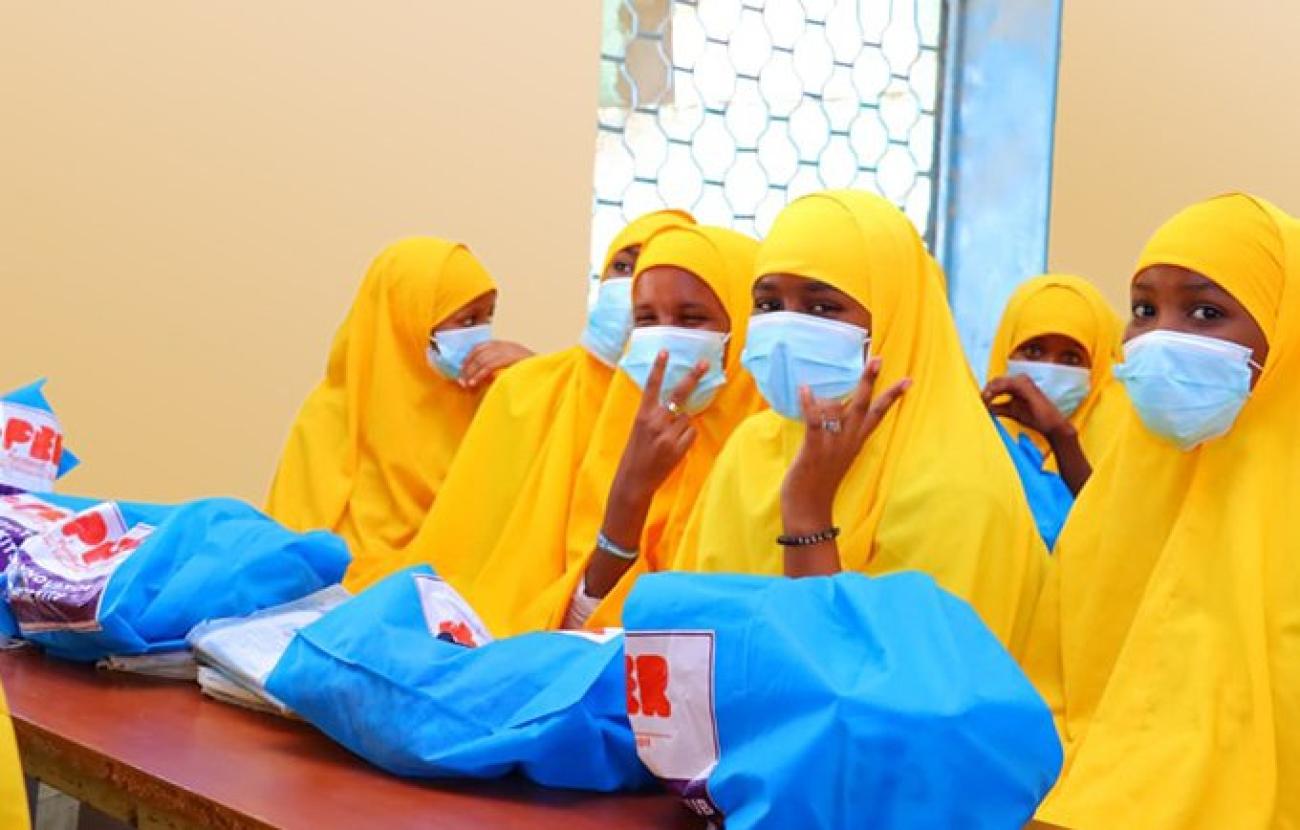Dignifying Somali girls and women: we must end period poverty now

An Op-Ed by UNFPA Somalia Representative, Mr. Anders Thomsen
Many girls and women across Somalia suffer from period poverty; they lack access to basic and essential feminine hygiene products such as sanitary pads. Lack of adequate sanitary hygiene products forces some girls to use unhygienic materials, potentially increasing urogenital symptoms and infection. Some end up using leaves from trees, old cloth and socks and old insides of mattresses and newspapers.
Menstruation is a natural element in the lives of women and girls. It depicts a normal healthy reproductive life. However, in many settings in Somalia, menstruation is seen as taboo and turns menstruation into a time of deprivation and stigma. Many women and girls cannot get out of their houses when they are menstruating and fail to undertake day-to-day activities to sustain their livelihoods, which subjects them to further poverty. Some girls fear participating in activities like school, athletics or social gatherings.
Access to sanitary supplies, clean water, and safe and toilet facilities can reverse this curse of period poverty and allow Somali girls and women to thrive.
For instance, Amira Yusuf, 14, from Mogadishu, dropped out of school two years ago as she did not feel comfortable attending classes while having her monthly periods. She did not have access to feminine hygiene supplies and feared embarrassment among her peers if she stained her clothes. She stopped going to school. Luckily, Amira has started benefiting from free sanitary supplies distributed by UNFPA to vulnerable girls and women across Somalia.
UNFPA Somalia distributed 10,000 reusable sanitary pads last year, and an additional 20,000 will be distributed in 2021. Women and girls receive a 12-month supply and are able to access sexual reproductive health services, including pain management.
UNFPA Somalia supports and educates community health workers who can provide care for and information about menstrual health. This includes promoting adolescent- and youth-friendly health services, which can help girls and young women better understand and care for their bodies.
At UNFPA Somalia, we are also reaching women and girls directly with awareness and knowledge related to menstruation, menstrual supplies and safe sanitation facilities and distributing dignity kits, which contain disposable and reusable menstrual pads, underwear, soap and related items. We also help to improve the safety of toilets and bathing facilities in displacement camps by working with camp officials, distributing flashlights and installing lights.
Abject poverty and the emergency situation in Somalia limits women's and girls' access to culturally appropriate menstrual supplies and safe, private washing facilities. The conditions are even worse for girls and women in marginalized communities, emergency and humanitarian contexts and incarceration facilities such as settlements for Internally Displaced Persons (IDPs), orphanages, refugee camps, impoverished school systems and prisons. Women and girls with special needs or disabilities also face enormous challenges when menstruating.
Today on Menstrual Hygiene Day, UNFPA Somalia calls for intensified action to respect, protect, and fulfil girls' and women's rights by ensuring prioritization of menstrual hygiene. The theme of this year's observation of the day is "Action and Investment in Menstrual Hygiene and Health." We are all called to stand with Somali women and girls and commit to providing more support towards national health systems, promoting menstrual health and providing treatment to girls and women suffering from menstrual disorders. We must all work together to eliminate violence against women and girls and guarantee all rights, including reproductive rights, for all women everywhere.
We need appropriate policy solutions to end period poverty. On this Menstrual Hygiene Day, we call on authorities, humanitarian agencies and development partners across Somalia to work together to develop menstrual policies to educate communities and end period shaming and period poverty.
Now is the time for Somali women and girls to prosper. Women's rights are fundamental human rights. Let us all stand for the right of every woman to live equally and free from discrimination.
Link to the original piece.



